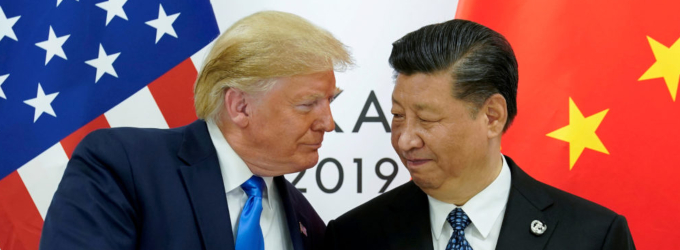(Bloomberg) – Ukraine and its allies have called on Donald Trump to pressure Xi Jinping over China’s support for Russia. Trump’s meeting with Xi later Thursday will be a major test of just how ready the U.S. president is to get tough with Vladimir Putin.

Image: Lukoil
A week after announcing sanctions on two major Russian oil companies, Trump has a chance to lean on China to curb purchases of Russian oil and deliver a blow to crucial energy revenues funding Moscow’s war in Ukraine. Trump has said he’ll raise Chinese oil buying with Xi as part of his renewed bid to end the fighting.
But applying significant pressure on Chinese buyers of Russian oil could spur retaliation from Beijing and likely ranks below economic priorities in the high-profile talks such as his efforts to secure a broader trade deal with the world’s second-biggest economy.
“Trump likely doesn’t want to do that, given the delicate trade talks that are underway,” said Chris Kennedy, a senior geo-economics analyst at Bloomberg Economics. “In an escalation scenario, China would probably pull multiple levers.”
China is the single-largest buyer of Russian crude and has been a vital lifeline for Moscow’s energy industry as Putin’s grinding war in Ukraine prompted rounds of western sanctions. While China has maintained it does not recognize unilateral U.S. restrictions, its larger companies are wary of getting tangled in secondary sanctions and fear losing access to U.S. financial markets.
Still, the Xi meeting offers Trump a chance to reinvigorate the Ukraine peace talks just one week after the White House blacklisted Russian oil giants Rosneft PJSC and Lukoil PJSC in its first major sanctions on Russia since Trump returned to office — cheering Europeans and Ukrainians who had long called for more U.S. pressure on Moscow.
The challenge for Trump is that for the sanctions to have any impact, they will need to be enforced. And enforcing them will mean punishing the main buyers — China and India.
“It’s always in the implementation — they get to choose whether they’re going to apply it,” Senator Chris Van Hollen, a Maryland Democrat, told an audience at the Council on Foreign Relations this week. “It will depend entirely on whether they’re serious about implementation.”
Trump’s new sanctions have already spooked big players in both countries. The U.S. could increase the pain for Xi by targeting major Chinese oil refiners and trading firms, going after the so-called shadow fleet carrying Russian crude to foreign markets, or by hitting Chinese banks handling the transactions. Washington has taken some similar measures in efforts to target Iranian oil exports.
Unlike some smaller economies pressured by Trump in the past, it’s not easy to exert leverage over China without incurring steep costs. Beijing has already deployed its rare earth dominance to retaliate against Trump’s tariffs and could easily do so again.

